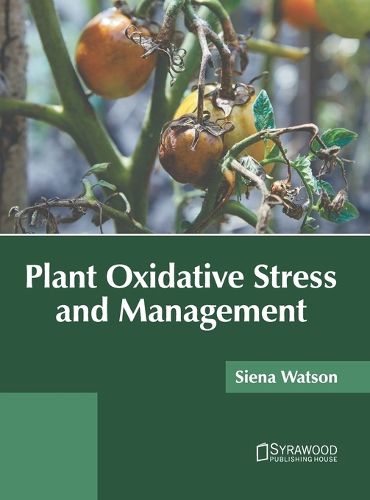Readings Newsletter
Become a Readings Member to make your shopping experience even easier.
Sign in or sign up for free!
You’re not far away from qualifying for FREE standard shipping within Australia
You’ve qualified for FREE standard shipping within Australia
The cart is loading…






Oxidative stress in plants is a complex chemical and physiological phenomenon that accompanies virtually all biotic and abiotic stresses in higher plants. There are various environmental factors such as extreme temperature, air pollutants, ultraviolet-B (UV-B) radiation, salinity, draught, pathogen infection and pesticides that can lead to the development of oxidative stress in plants. Exposure to all these factors affects a range of biological processes due to the generation of reactive oxygen species (ROS). It is produced during mitochondrial oxidative metabolism and due to the cellular response to xenobiotics, cytokines, and bacterial invasion. An excessive production and accumulation of ROS causes an imbalance between the production of ROS and the neutralization of free radicals by antioxidants. Plant oxidative stress can be managed either by developing transgenic plants overexpressing one or more antioxidants, or by developing mutants that are resistant towards certain stresses. This book includes some of the vital pieces of works being conducted across the world, on various topics related to oxidative stress in plants as well as its management. It will serve as a valuable source of reference for graduate and postgraduate students.
$9.00 standard shipping within Australia
FREE standard shipping within Australia for orders over $100.00
Express & International shipping calculated at checkout
Oxidative stress in plants is a complex chemical and physiological phenomenon that accompanies virtually all biotic and abiotic stresses in higher plants. There are various environmental factors such as extreme temperature, air pollutants, ultraviolet-B (UV-B) radiation, salinity, draught, pathogen infection and pesticides that can lead to the development of oxidative stress in plants. Exposure to all these factors affects a range of biological processes due to the generation of reactive oxygen species (ROS). It is produced during mitochondrial oxidative metabolism and due to the cellular response to xenobiotics, cytokines, and bacterial invasion. An excessive production and accumulation of ROS causes an imbalance between the production of ROS and the neutralization of free radicals by antioxidants. Plant oxidative stress can be managed either by developing transgenic plants overexpressing one or more antioxidants, or by developing mutants that are resistant towards certain stresses. This book includes some of the vital pieces of works being conducted across the world, on various topics related to oxidative stress in plants as well as its management. It will serve as a valuable source of reference for graduate and postgraduate students.